Issue #5
poetry
Edited by Emily Baird, Kayley Hirose, Jasmine Manango, Anika Nicholson
“eulogy for the flesh”
by Sagorika Haque
My poetry engages with lived experience as a call to arms and arena for fostering and practicing hope, care, resistance, and loving while existing in a body traumatized by institutionalized forms of violence, through the lens of a South Asian woman of color.
“Pocket Activist”
by Demitri Camperos
This poem evokes a very specific memory of me campaigning for Bernie Sanders while near-penniless in Los Angeles, one of the most expensive places in the nation to live. Fighting for political equity in the slow grind of bureaucracy while passing by those who are immediately impacted by our country's obsession with monetization, the dual strokes of wanting to help in one aspect and feeling utterly unable to in the tangible, urgent other.
“what was I supposed to say”
by Alyssa Hanna
All of the work I have submitted is directly related to my experience as a mentally ill, mixed race adoptee and person who can get pregnant/give birth-- a group of people that are constantly used as props in other peoples' arguments about politics, identity, and morality, yet ignored when we ourselves speak. Adoptees, especially international ones, do not have the same human rights guaranteed under the US Constitution that non-adoptees have, and if my work can shed light on that at all, or make any other fellow adoptee feel a little less alone, my mission will be accomplished.
“roe”
by Alyssa Hanna
All of the work I have submitted is directly related to my experience as a mentally ill, mixed race adoptee and person who can get pregnant/give birth-- a group of people that are constantly used as props in other peoples' arguments about politics, identity, and morality, yet ignored when we ourselves speak. Adoptees, especially international ones, do not have the same human rights guaranteed under the US Constitution that non-adoptees have, and if my work can shed light on that at all, or make any other fellow adoptee feel a little less alone, my mission will be accomplished.
“1976, Main Street”
by Moni Brar
This poem straddles the political and the personal while illuminating transgenerational trauma resulting from an erased, marginalized history and existence. My work aims to take an oppositional stance and seeks to heal the rifts of colonization with language.
“Jacaranda”
by Jae Eason
My work relates to the commitments in decomp journal's mission statement in that it is the reflection of my world and how I choose to live in it. My work expresses how I am able to exist in this world, not only as a black woman, but a queer black woman. How the promises given to many, sometimes miss me.
“Objective Correlative”
by Kevin McLellan
"Objective Correlative" is a quasi-rant with narrative interruptions from the glass blower (the you) and the grammarian (the objective speaker) and the police with the young couple, yet the insincere invitation for dinner returns and allows for a subjective cranky speaker to vent about it and them.
“Virtual Particles”
by Mikal Wix
The voices from the margins need to be louder, and one way to amplify them is to fortify their explosive potential by adding accelerants, such as honest indictments of cruelty AND mercy, because every flame once began simply for warmth. Poems can be both spark and black powder in that they are possible bridges from (and to) the edges.
“Still life with narrative coherence”
by Jeanne Obbard
I appreciate poetry that trusts to strangeness as a way to break open perception. What can a broken poem also in turn break open? You can build culture differently if you can imagine that culture can be built differently. Too often I try to make my poems MEAN. But I prefer to let my poems mean on their own, without my interference.
“Somatic practice for those who wake up afraid”
by Griffin Epstein
As both a mental health practitioner and a person who has consistently utilized therapeutic and psychiatric resources, I explore the concepts of madness and the ways contemporary language and discourse around mental health and healing can be both personally transformative and profoundly reinforcing of / entrenched in / further entrenching interlocking forms of social oppression. As an educator, researcher, and a poet complicit in systems of white supremacist, capitalist, colonial, heteropatriarchal and ableist violence, I am always also interested in accountability, agency, and the need to both acknowledge and work beyond the fiction of the individual self.
“Gods of the Liquor Store Video Game”
by Christian Hanz Lozada
While most of my poems describe internal negotiations to maintain identity, this one explores external concessions in the face of poverty, race, and a little bit of generational divide.
“the blues”
by Gerard Sarnat
“Real” life suffuses my work. High-stress medical career, leisure around family in a forest, confronting climate change, humor and poetry interact with each other to keep this mid-septuagenarian feeling energetic, happy and useful. Brave poetry is important to me because such gyrations elevate life, both by reading others' work and creating my own which expresses my voice, makes me happy, perhaps keeps me young(er).

